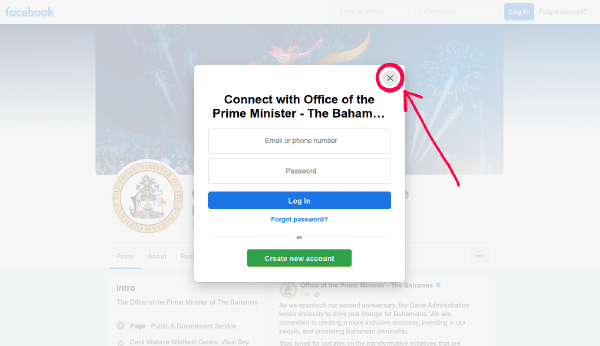Did you know that cPanel has a back end user–space API? I’ve yet to see a web front end user dashboard that’s reliable and consistent.

Another wandering soul whispering into the void. If you are looking for my blog you are in the wrong place. The profile and header pictures are brought to you by cdd20.

Another wandering soul whispering into the void. If you are looking for my blog you are in the wrong place. The profile and header pictures are brought to you by cdd20.
Some of you were curious. Text assistants and bots are booming, as shovelers seek the god oracle and magnum opus. Here’s the numbers for a naked robots.txt. Inferences, up to you.
In (30 day) levels of aggression, with the most aggresive/inefficient crawler at the bottom;
- Applebot/0.1 [20.1 MiB]
- heritrix/3.4.0-20200304 [21.8 MiB]
- YandexBot/3.0 [28 MiB]
- GPTBot/1.0 [30.1 MiB]
- IonCrawl [31.6 MiB]
- CCBot/2.0 [40.6 MiB]
- DataForSeoBot/1.0 [51.2 MiB]
- SeznamBot/4.0 [58.6 MiB]
- facebookexternalhit/1.1 [64.1 MiB]
- Google-Read-Aloud [86 MiB]
- PetalBot [91.3 MiB]
- Barkrowler/0.9 [98.6 MiB]
- SemrushBot/7~bl [141.1 MiB]
- BLEXBot/1.0 [152 MiB]
- AhrefsBot/7.0 [159.5 MiB]
- MJ12bot/v1.4.8 [285.2 MiB]
- bingbot/2.0 [373.4 MiB]
- Googlebot/2.1 [535.2 MiB]
- Bytespider [543 MiB]
- DotBot/1.2 [806 MiB]
- Amazonbot/0.1 [2.6 GiB]

Another wandering soul whispering into the void. If you are looking for my blog you are in the wrong place. The profile and header pictures are brought to you by cdd20.
Rule #1 of finding technical feeds; type ‘OPML’ into GitHub search. GitHub is like a social network for software engineers and I’m a conservationist of time.

Another wandering soul whispering into the void. If you are looking for my blog you are in the wrong place. The profile and header pictures are brought to you by cdd20.
Are you a safe kid? I’ve just had a memory of a past time in a library.

Another wandering soul whispering into the void. If you are looking for my blog you are in the wrong place. The profile and header pictures are brought to you by cdd20.
Two newer meta-ish search engines for encyclopedias (about 30+ wikis):

Another wandering soul whispering into the void. If you are looking for my blog you are in the wrong place. The profile and header pictures are brought to you by cdd20.
On math, magic, and mathematical grimoires.. As I was “speedrun reading” about MathML days ago, I discovered an amazing digital library of mathematical functions. Boring, but why amazing? Take a look at this function and hover click on any of the variables to view the definition, and keep clicking on more variables for even more… definitions. That’s a legit library.
See, now all of us can roleplay as mages and mathematicians on the Internet.

Another wandering soul whispering into the void. If you are looking for my blog you are in the wrong place. The profile and header pictures are brought to you by cdd20.
Mathematical Markup Language (MathML)? I’ve thought about LaTeX/TeX strategies on the web for a bit ever since someone asked years ago about different approaches. I never got to poking around on my blog, but since then the masters have delivered unto us;
- MathML ( based web specification)
- KaTeX
- MathJax
In format conversion land we’ve been given; LaTeXML, make4ht, texmath, temml, and Pandoc.
MathML looks rather safe. After that, I’d imagine it’s mostly incompatability struggles, XML spooks, and making math “write easy”.

Another wandering soul whispering into the void. If you are looking for my blog you are in the wrong place. The profile and header pictures are brought to you by cdd20.
I caught a glimpse of an interesting thing by chance.
Meta Platforms
Facebook hid the x from their login prompt on
public pages–including government pages, then brought it back. ‘Twas on the
desktop before mobile and perhaps (who knows) for a subset (as a test). A “login
only public page” is for a near–distant future, set. Seriously though;
developer documentation will become my
final excuse to visit Facebook.

x factor
Index: Cache · Source

Another wandering soul whispering into the void. If you are looking for my blog you are in the wrong place. The profile and header pictures are brought to you by cdd20.
I came across a good
article on finding video feed links
from various (mostly western) sites. Odysee links have a funky format that are
prefixed with https://odysee.com/$/rss + channel.
So this (channel):
https://odysee.com/@andkos.music:1
Becomes this (feed):
https://odysee.com/$/rss/@andkos.music:1

Another wandering soul whispering into the void. If you are looking for my blog you are in the wrong place. The profile and header pictures are brought to you by cdd20.
I poked around the Activity Stream docs a while back.
And… as a pretend expert :) started wondering: In the big bad messy real world (super serious business), how does one on such a decentralized (social) network thoroughly:
- Block specific users from viewing
- Block specific users from following
- Block specific users from interacting
- Delete previous local/remote content from specific users following
- Delete previous local/remote interactions from specific users interacting
ActivityPub is an open/transparent protocol (amazing) but for adoption, the expectation/reality of many users online anywhere (even public networks) is favourable discoverability not discoverability itself… however contradictory/debatable. That’s probably easy/possible centralized but stupid hard/impossible decentralized.